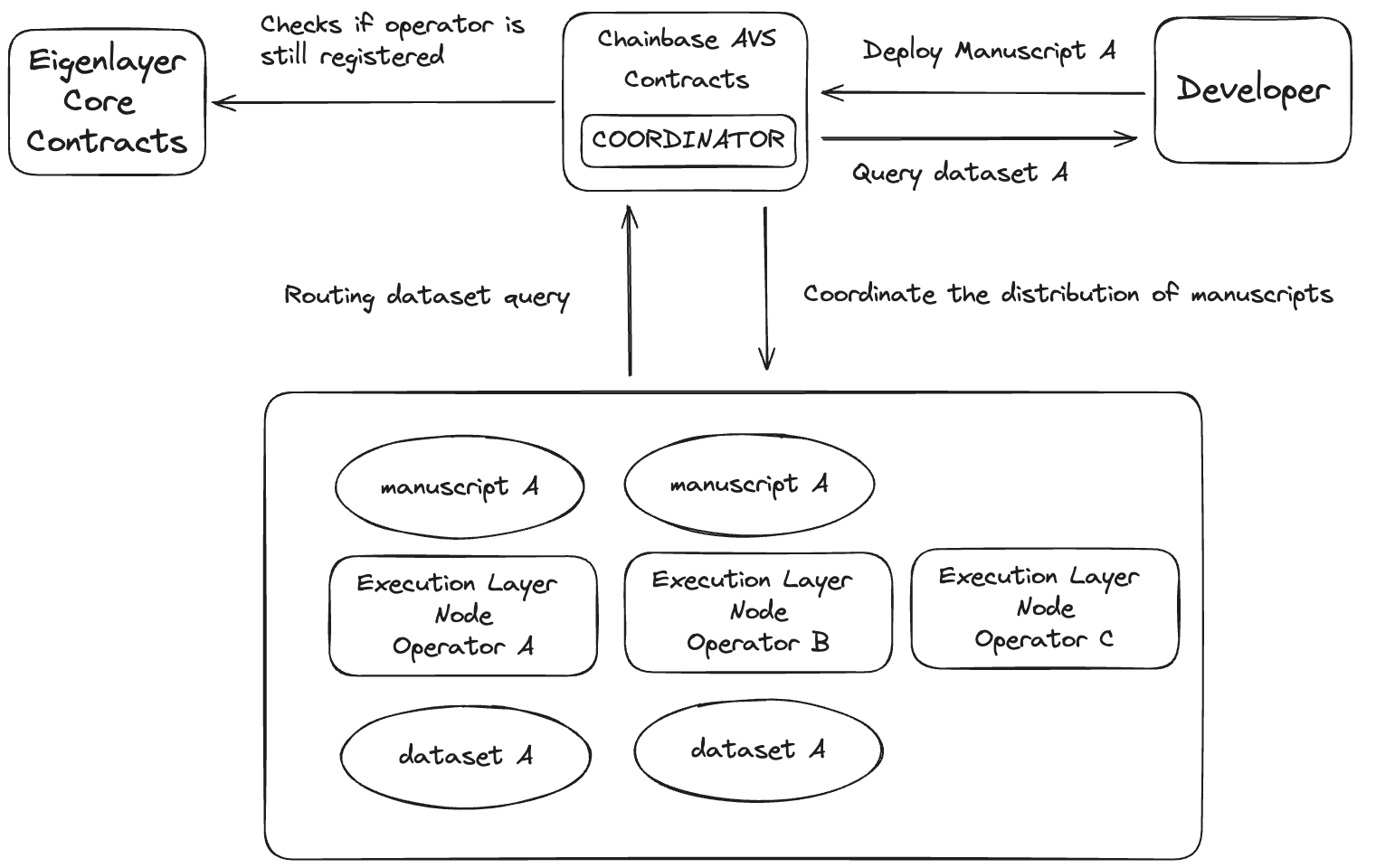With its AVS (Active Verification Service)-based data processing architecture, Chainbase provides a brand new solution for the entire industry, showcasing remarkable technological innovation and business potential.

As a super data network driven by the dual-chain architecture of Cosmos and EigenLayer, Chainbase is committed to providing a trustworthy and transparent on-chain data processing environment. The core of this design philosophy lies in the Manuscript protocol running on the Chainbase Virtual Machine (CVM), ensuring seamless interoperability of data. More importantly, by integrating EigenLayer’s staking mechanism, Chainbase successfully leverages Ethereum's economic security to build a high-performance AVS execution layer.
The innovation of Chainbase's execution layer nodes lies in its EigenLayer-based architectural design. This design provides users with a dedicated node network for on-chain data processing, where developers can submit Manuscript data processing programs and request final result datasets. EigenLayer operators with computing resources can provide the necessary computing power for the system by re-staking and registering as execution layer nodes in the Chainbase network.
The economic incentive mechanism designed for this model is particularly clever. As the Chainbase network integrates data query fees, re-stakers will generate income from this, forming a sustainable incentive loop. As more Manuscript runs on the Chainbase network, the demand for high-quality computing resources is continually increasing.
To achieve elastic scaling of resources and maintain high throughput, Chainbase adopts an intelligent task routing strategy. The system can route on-chain computing tasks to the best providers based on the operating preferences of Manuscript. This routing decision takes into account multiple key factors, including node geographical location (latency), computing hardware configuration, and network environment quality. Through this refined resource scheduling, Chainbase ensures that each data processing task can obtain the optimal execution environment.
EigenLayer plays a crucial role in this architecture. By providing diverse operators and routing strategies, EigenLayer offers strong support for the expansion needs of the Chainbase network. This partnership not only enhances the decentralization of the system but also brings greater economic security to the entire network.
From a technical implementation perspective, Chainbase's AVS architecture demonstrates significant advantages. First, it effectively addresses performance bottlenecks in large-scale data processing. By distributing computing tasks across multiple high-performance nodes, the system can handle the massive data that traditional blockchain networks struggle to manage. Secondly, the staking mechanism based on EigenLayer ensures the security and stability of the system, providing strong assurance for the credibility of data processing results.
It is noteworthy that this architectural design reflects forward-thinking considerations for the future needs of blockchain applications. As the complexity of Web3 applications continues to rise, the demand for data processing capabilities is also surging. Chainbase, through its innovative AVS architecture, not only meets current market demands but also reserves ample room for future application scenarios.
From a business model perspective, Chainbase's data processing network creates a multi-party win-win ecosystem. Developers can easily access high-quality data processing services, operators earn stable income by providing computing resources, and the entire network achieves value growth through steadily increasing usage demand.
Overall, Chainbase’s AVS-based data processing architecture represents an important direction in the development of blockchain technology. By cleverly combining the advantages of Cosmos and EigenLayer, Chainbase has successfully built a data processing network that is both secure and efficient. This innovation not only provides strong technical support for current blockchain applications but also opens up new possibilities for the future development of the entire industry. As the demand for high-quality data processing grows in more and more application scenarios, Chainbase will undoubtedly play an increasingly important role in this field.
